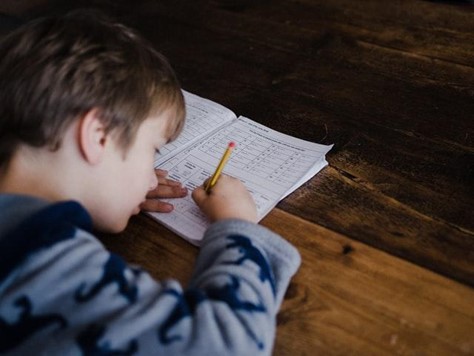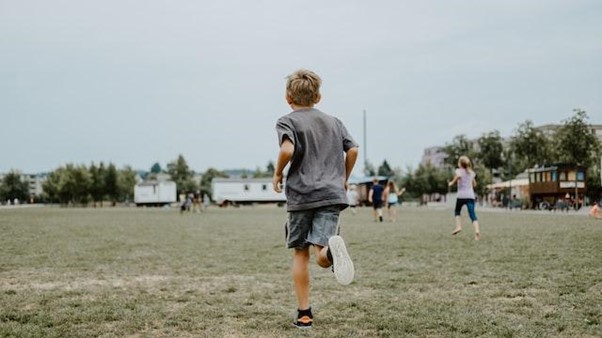Daniel Swersky has over 17 years of experience as an educator. As a founding school leader. Mr. Swersky regularly contributes to publications on education-related topics and, in the following article, Danny Swersky discusses the effects of physical education on students’ academic performance in school.
By most standards, academic performance is linked to test scores, homework grades, and hours spent studying. Yet research suggests that the amount of physical education a child receives can greatly affect their learning outcomes. During exercise, the cognitive functions responsible for healthy memory and attention are strengthened, improving children’s abilities to perform in a classroom says Daniel Swersky.
Beyond the cognitive benefits of physical activity, mid-day exercise at recess or gym class allows children a much-needed break to refocus their minds, release pent-up energy, and return refreshed for the remainder of their lessons. Daniel Swersky breaks these points down and explores in more detail how physical education can positively affect academic progress.
The Brain and Body are Connected – Improving One Improves the Other
As federally mandated curriculums have shifted teachers’ attention towards test scores, students have lost opportunities to exercise and remain physically active throughout the day. Yet, leading researchers have almost unanimously agreed that allowing children to continue with physical education can improve their cognitive functioning.
Daniel Swersky explains that during strenuous exercise, the body learns to better regulate its oxygen intake, cardiovascular performance, and mental focus to execute complicated physical movements. Additionally, exercise increases the production of neurotransmitters in the brain, helping to reduce stress and anxiety, and boosting mood.
Through the combination of these effects, the brain’s executive functions are also strengthened, particularly the abilities to form and store new memories and focus on tasks for extended periods. In time, these benefits translate over into academics, helping students to remember what they learn in class and pay attention throughout the entire lesson, reports Danny Swersky.
 Physical Education Provides a Break for Children’s Attention
Physical Education Provides a Break for Children’s Attention
There’s no lack of evidence that children begin to lose attention after the 30-minute mark says Danny Swersky. Although there are specialized pedagogical techniques to help prolong their attention, leaving a child or teenager to sit for hours on end listening to lectures is largely ineffective and a mind-numbing practice for their academic progress, explains Daniel Swersky.
In contrast, giving children regular opportunities to move their bodies and take part in physical education can help refocus their minds before they return to their studies feeling fresh. Daniel Swersky reports that a recent study explored the effects of introducing physical activity breaks in elementary school classrooms and found that students who were allowed to move around every 20 minutes had increased on-task behavior, improved academic performance, and reduced disruptive behavior.
It’s important to note that the type of activity is less important than the act of moving. Danny Swersky explains that children who are allowed to choose their own activity or game at recess tend to be more engaged and play for longer periods than those who are directed in a structured activity.
Improved Physical Fitness Correlates with Higher Math and English Test Scores
When researchers set out to explore the exact influence of physical education on academic performance, they found unequivocal evidence that fitness correlates with higher test scores. In a large sample of students from grades 4 through 8, those who had scores higher in their physical fitness exams also scored higher in both mathematics and English.
Daniel Swersky explains that research does suggest that regular exercise can improve attention, memory, and cognitive executive functioning.
The Implications of These Findings
From the perspective of a student, these findings may not seem all that surprising. It’s well-known that children who participate in sports or other activities outside of school tend to have better grades and perform better on tests.
But what is surprising is that these findings challenge the status quo of how we educate our children. For years, schools have been cutting back on physical education and recess in favor of more classroom time, yet the research suggests that this may be counterproductive to academic success. It’s time for a change says Danny Swersky.
If we want our children to succeed academically, we must give due attention to their physical and mental well-being. We must afford them the opportunity to move their bodies and take breaks throughout the day to refocus their minds. Only then can we hope to see real improvement in academic performance.
The Takeaway
In short, physical education has a profound and positive effect on academic performance. By ensuring that our children are physically active, we can help them to improve their focus, memory, and attention, and boost their test scores. We can also help them to enjoy their time at school more by giving them the opportunity to play and move around during the day.









